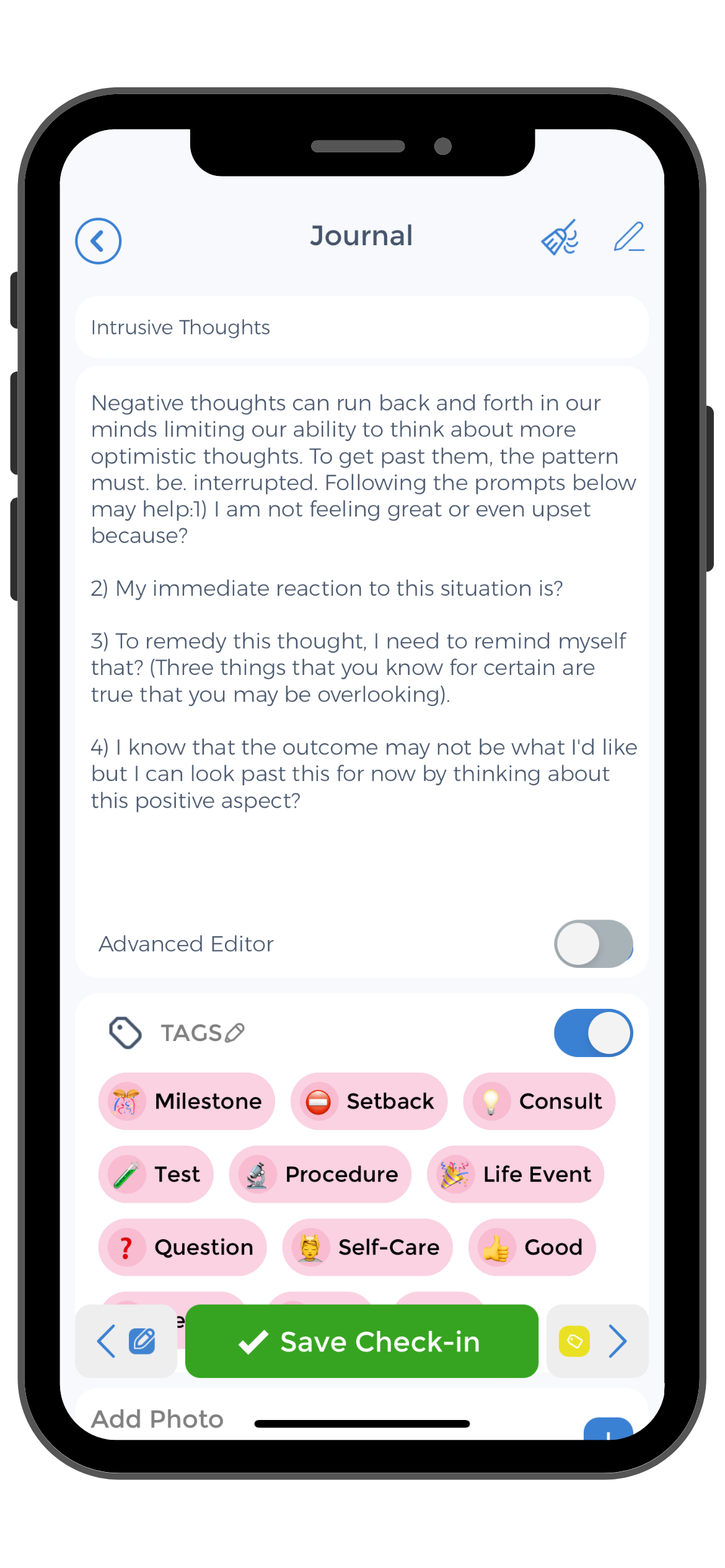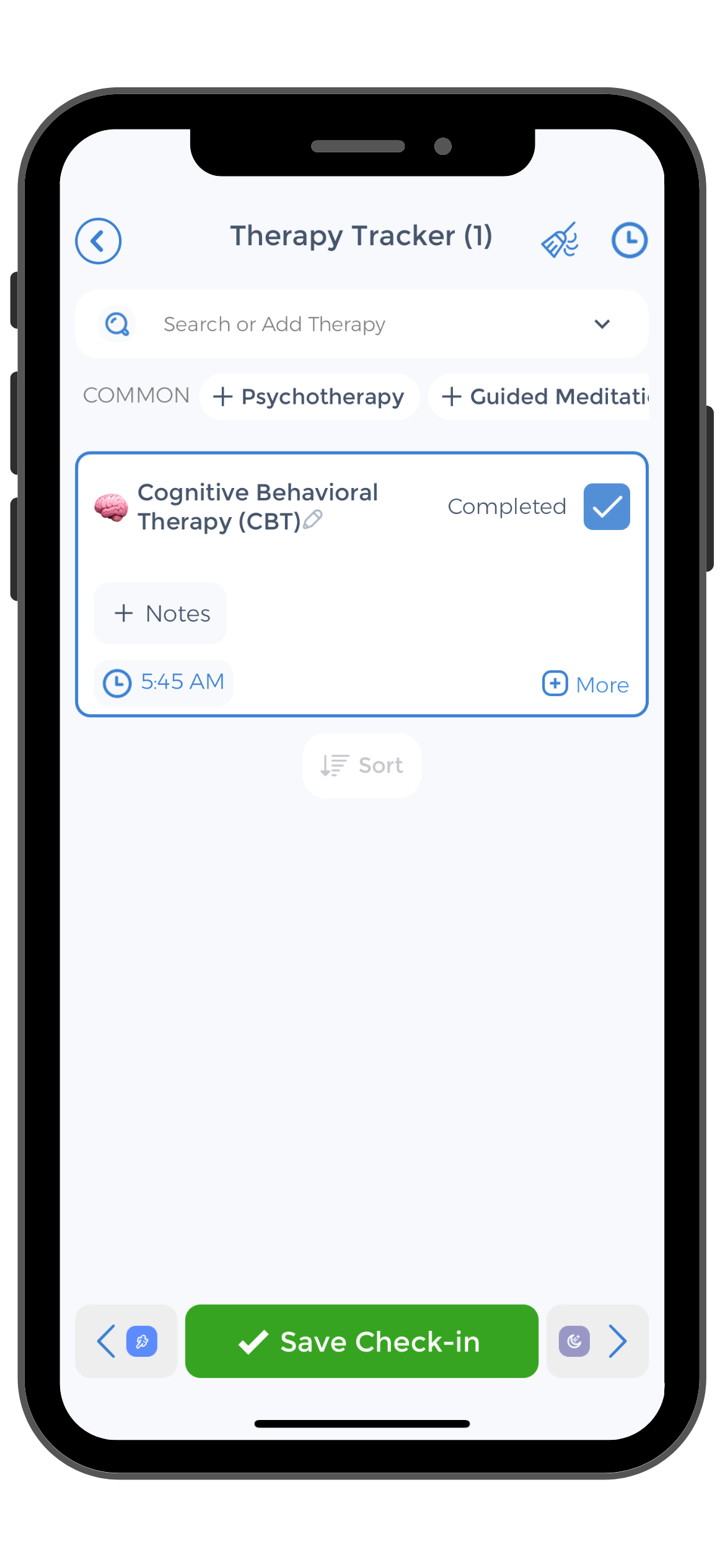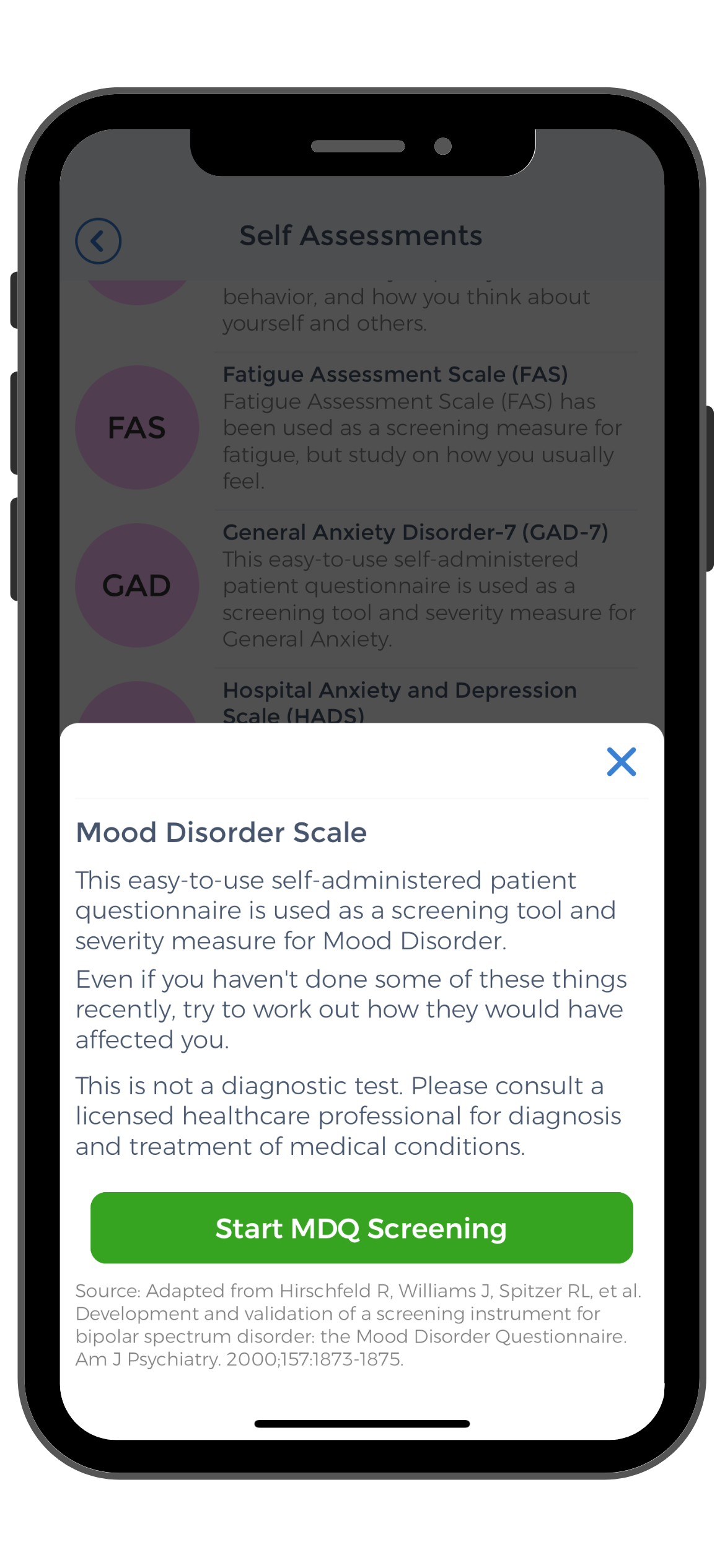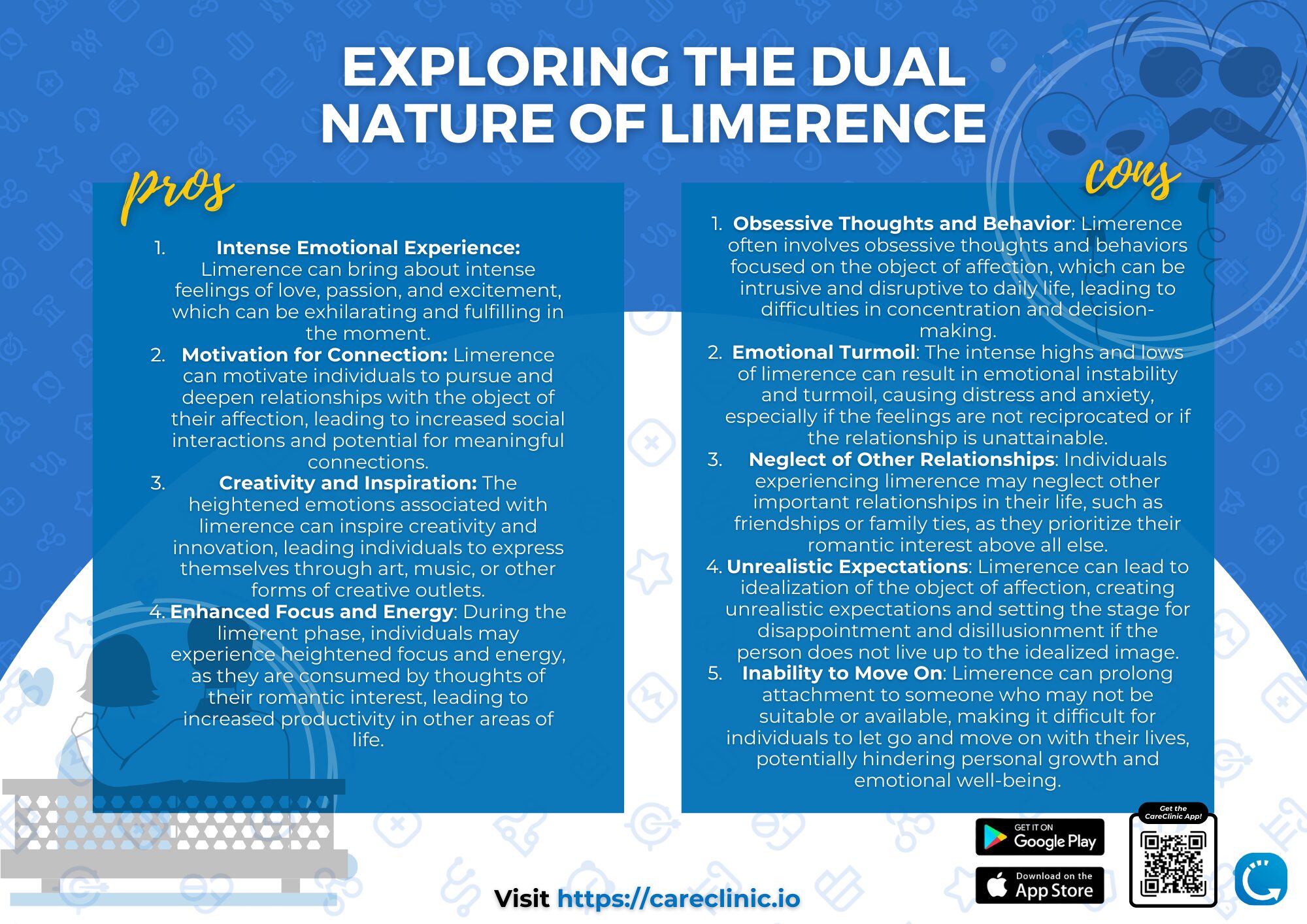
Limerence, a term coined by psychologist Dorothy Tennov, refers to an intense and obsessive form of romantic attraction. When living with limerence takes hold, it can have a pretty profound impact on our daily lives and emotional well-being.
Whether you are currently experiencing limerence or feel you have recently emerged from its grip, understanding this emotional phenomenon and learning effective coping strategies is crucial for moving forward and creating a healthier, more balanced life.
Understanding Limerence
Defining Limerence: An Emotional Experience
 Limerence is more than just a crush or infatuation. It is a deeply emotional and all-consuming experience. People experiencing limerence often develop intense, obsessive thoughts and fantasies about the object of their desire. They may also experience physical symptoms such as increased heart rate, butterflies in the stomach, and difficulty sleeping. Understanding the nature of limerence can help individuals gain insight into their own experiences and emotions.
Limerence is more than just a crush or infatuation. It is a deeply emotional and all-consuming experience. People experiencing limerence often develop intense, obsessive thoughts and fantasies about the object of their desire. They may also experience physical symptoms such as increased heart rate, butterflies in the stomach, and difficulty sleeping. Understanding the nature of limerence can help individuals gain insight into their own experiences and emotions.
Furthermore, limerence is not limited to romantic relationships. It can also manifest in other areas and act of life, such as friendships or professional connections. The intensity of limerence can vary from person to person, with some individuals experiencing mild infatuations while others are completely consumed by their feelings. Exploring the different degrees of limerence can shed light on the complexities of human emotions and relationships.
The Psychological Aspects of Limerence
Psychologically, limerence can be traced back to a combination of biological factors and learned patterns of behavior. It often stems from a deep-seated need for validation or a desire for connection and intimacy. Identifying these underlying psychological factors can help individuals develop a more balanced perspective and work towards healthier relationship dynamics.
In addition, limerence can sometimes be triggered by unresolved emotional issues from the past, leading individuals to seek out intense emotional connections as a way to fill a void or cope with underlying pain. Recognizing these patterns can be a crucial step in breaking free from the cycle of limerence and fostering healthier emotional well-being. By delving into the psychological aspects of limerence, individuals can gain a deeper understanding of themselves and their relational patterns, paving the way for personal growth and self-discovery.
The Impact of Limerence on Daily Life
Emotional Consequences of Limerence
Limerence can have a profound impact on our emotional well-being. It is common for individuals experiencing limerence to go through intense highs and lows, as their emotions are tightly linked to the object of their desire. These emotional fluctuations can disrupt daily life and make it difficult to focus on other areas of life such as work, hobbies, and personal relationships.
Furthermore, the all-consuming nature of limerence can lead to a rollercoaster of emotions, ranging from euphoria felt when the limerent object reciprocates feelings, to despair and heartache when faced with rejection or indifference. This emotional turmoil can be exhausting and overwhelming, affecting not only the addicted individual’s mental health but also their physical well-being.
Limerence and Interpersonal Relationships
Limerence can also affect our existing interpersonal relationships with real person. The obsession and preoccupation with the limerent object may lead to neglecting other important relationships and interest. Causing strain and conflict with friends, family, or partners. Recognizing this impact is crucial for maintaining healthy and balanced relationships with others.
Moreover, the idealized image of love in the limerent object can create unrealistic expectations in other relationships, leading to dissatisfaction and disappointment. This comparison between love in the fantasy of limerence and the reality of everyday relationships can strain connections and hinder genuine emotional intimacy.
Coping Strategies for Limerence
Self-Care Techniques for Managing Limerence
Engaging in self-care activities is essential for managing limerence and promoting emotional well-being. Here are some self-care techniques you can try:
- Practice mindfulness: Take time to tune into the present moment and cultivate awareness of your emotions and thoughts. Mindfulness exercises and meditation can help you convinced yourself to develop a sense of calm and detachment from limerent thoughts.
- Express emotions through creative outlets: Explore creative activities such as writing, painting, or playing an instrument to express your emotions in a healthy way. Artistic expression can serve as a form of catharsis and provide an outlet for intense feelings.
- Engage in physical activity: Regular exercise can help reduce stress and anxiety, boost mood, and improve overall well-being. Find a physical activity you enjoy, whether it’s yoga, jogging, or dancing, and incorporate it into your routine.
- Seek social support: Reach out to trusted friends or family members who can provide a listening ear and support. Talking about your feelings with someone who understands can provide a sense of relief and offer valuable perspective.
While these self-care techniques are effective in managing limerence, it’s important to remember that everyone’s journey is unique. What works for one person may not work for another. It’s crucial to explore different strategies and find what resonates with you personally.
Another technique you can try is practicing self-compassion. Limerence can often be accompanied by feelings of shame, guilt, and self-blame. By practicing self-compassion, you can learn to treat yourself with kindness and understanding, acknowledging that limerence is a complex emotional experience that many people go through.
Professional Help: Therapy and Counseling
 For individuals struggling to live with severe limerence symptoms or finding it challenging to cope on their own, seeking professional help can be incredibly beneficial. Therapies such as cognitive-behavioral therapy (CBT) and psychotherapy can help individuals gain insight into their patterns of thinking and behavior and develop healthier coping mechanisms. Additionally, utilizing self-help tools like the CareClinic App, which offers a wide range of features to track and manage emotional well-being, can enhance your progress towards healing and recovery.
For individuals struggling to live with severe limerence symptoms or finding it challenging to cope on their own, seeking professional help can be incredibly beneficial. Therapies such as cognitive-behavioral therapy (CBT) and psychotherapy can help individuals gain insight into their patterns of thinking and behavior and develop healthier coping mechanisms. Additionally, utilizing self-help tools like the CareClinic App, which offers a wide range of features to track and manage emotional well-being, can enhance your progress towards healing and recovery.
Remember, seeking professional help is not a sign of weakness, but rather a courageous step towards prioritizing your mental health. A trained therapist or counselor can provide a safe space for you to explore your emotions, gain clarity, and develop effective strategies to navigate limerence.
It’s important to note that therapy is not a quick fix, but rather a process that requires time, effort, and commitment. Healing from limerence takes patience and persistence, but with the right support and resources, it is possible to find a sense of peace and emotional well-being.
Moving Forward from Limerence
Steps to Overcome Limerence
While overcoming limerence may require time and effort, taking proactive steps can facilitate the healing process. Here are some steps you can take to move forward:
- Gain self-awareness: Reflect on your own patterns of behavior and identify any underlying causes or triggers for limerence. This self-reflection can help you gain a better understanding of yourself and the factors contributing to your limerence experience.
- Create distance: Establishing physical and emotional distance from the limerent objects can be challenging but is crucial for breaking the obsessive thought patterns. Minimizing contact and avoiding situations that trigger limerence can contribute to the recovery process.
- Focus on personal growth: Invest time and energy into personal growth and development. Engage in activities that bring you joy, pursue hobbies, and set goals for yourself outside of limerent relationships. Self-improvement can help shift your focus away from limerence and towards a more fulfilling life.
Building Healthy Relationships Post-Limerence
As you work towards moving forward from limerence, it’s essential to focus on building healthy and balanced relationships. Here are some tips to consider:
- Develop open and honest communication: Healthy relationships are built on effective communication. Practice open and honest communication with your loved ones, expressing your needs, desires, and boundaries in a respectful manner.
- Seek shared interests and values: Building connections based on shared interests and values can foster a strong and lasting bond. Engage in activities and communities that align with your passions, increasing the likelihood of meeting individuals who share similar interests.
- Take it slow: Allow relationships to unfold naturally and avoid rushing into commitment. Take the time to get to know the person and build a solid foundation before diving headfirst into a new romance.
Furthermore, it’s important to acknowledge that moving forward from limerence is not a linear process. It can be filled with ups and downs, moments of clarity and moments of doubt. Remember to be patient with yourself and allow yourself the time and space to heal.
During this journey, it can be helpful to seek support from trusted friends, family members, or even a therapist. Having someone to talk to and share details of your experiences with can provide valuable insights, information and guidance as you navigate the complexities of moving on from limerence.
Additionally, practicing self-care is crucial during this time. Engage in activities that bring you comfort and relaxation, whether it’s taking long walks in nature, practicing mindfulness and meditation, or indulging in a hobby that brings you joy and purpose. Taking care of your physical, emotional, and mental well-being will contribute to your overall healing process.
Maintaining Emotional Health After Limerence
Preventing Relapse: Strategies and Tips
After overcoming limerence, it’s important to establish strategies for preventing relapse. Here are some tips to help you maintain emotional well-being:
- Maintain self-awareness: Stay attuned to your emotions and patterns of thinking. Regular self-reflection and mindfulness practices can help you identify any signs of relapse and take proactive steps to prevent it.
- Continue practicing self-care: Even after recovering from limerence, continue engaging in self-care activities that support emotional well-being. Stick to a self-care routine and incorporate activities that bring you joy and relaxation.
- Set healthy boundaries: Establishing and maintaining healthy boundaries in your relationships is crucial for protecting your emotional well-being. Be clear about your needs and limits, and communicate them assertively when necessary.
Promoting Emotional Resilience and Well-being
To promote emotional resilience and overall well-being, consider incorporating the CareClinic App into your self-care routine. With its comprehensive features, such as mood tracking, goal setting, and personalized reminders, CareClinic can serve as a valuable tool for managing your emotional health and promoting long-term well-being.
But let’s delve deeper into the concept of emotional resilience. It refers to an individual’s ability to adapt and bounce back from adversity, trauma, or stress. Building emotional resilience is essential for maintaining mental well-being, especially after experiencing limerence.
 One effective way to foster emotional resilience is by developing a strong support system. Surrounding yourself with supportive friends and family members can provide a sense of belonging and help to guide you navigate the challenges that may arise during your recovery journey. Additionally, seeking professional help, such as therapy or counseling, can equip you with the necessary tools to cope with any emotional setbacks.
One effective way to foster emotional resilience is by developing a strong support system. Surrounding yourself with supportive friends and family members can provide a sense of belonging and help to guide you navigate the challenges that may arise during your recovery journey. Additionally, seeking professional help, such as therapy or counseling, can equip you with the necessary tools to cope with any emotional setbacks.
Another crucial aspect of emotional resilience is cultivating a positive mindset. This involves reframing negative thoughts and focusing on the present moment. Engaging in gratitude practices, such as keeping a gratitude journal or expressing appreciation for the little things in life, can help shift your perspective and enhance your overall well-being.
Furthermore, incorporating physical exercise into your routine can have a profound impact on your emotional health. Exercise releases endorphins, which are natural mood boosters, and can help reduce stress and anxiety. Whether it’s going for a jog, practicing yoga, or joining a dance class, finding an activity that you enjoy and that gets your body moving can greatly contribute to your emotional resilience.
Maintaining good emotional health after limerence requires a multifaceted approach. By understanding limerence, implementing effective coping strategies, and taking proactive steps towards personal growth and healthy relationships, you can navigate life with limerence and move forward, building a more fulfilling and balanced life.
Use the CareClinic App to Help Manage Limerent Objects
If you’re navigating the complexities of limerence, the CareClinic App is an invaluable tool designed to guide and support your journey to emotional well-being. By tracking your mood patterns, identifying triggers, and monitoring your progress, the app helps you gain insights into your emotional health.
Features like personalized reminders ensure you stay on top of self-care routines and therapy sessions, while goal setting helps you focus on personal growth and building resilience. With the CareClinic App, you’re empowered to take control of your emotional journey and work towards a balanced life.
Download the CareClinic App to Help Track Living with Limerence
Experience the benefits of structured emotional health management by installing the CareClinic App today. Its user-friendly interface allows you to easily document your experiences with limerence, set reminders for self-care activities, and track your progress over time.
This consistent monitoring can lead to improved health outcomes, providing you with a clearer path out of limerence’s grip. To start your path to recovery and enhanced emotional well-being, install the app and take the first step towards a healthier, more balanced life.
References
- “Limerence”. https://en.wikipedia.org/wiki/Limerence
- “Effective Treatments for Limerence: Overcoming Obsession | Bay Area CBT Center”. https://bayareacbtcenter.com/effective-treatments-for-limerence/
- “Limerence: Meaning, signs, causes, and how to overcome it | therapist.com”. https://therapist.com/moods-and-emotions/limerence/
- “Limerence: Symptoms, Causes, and Ways to Cope”. https://psychcentral.com/relationships/limerence
- “What is Limerence? Definition and Stages | Attachment Project”. https://www.attachmentproject.com/love/limerence/
- “5 Insights on Limerence – Mental Health – eNotAlone”. https://www.enotalone.com/article/mental-health/5-insights-on-limerence-r11563/
- “Limerence vs love: When love is really obsession – Counselling Directory”. https://www.counselling-directory.org.uk/articles/limerence-vs-love-when-love-is-really-obsession
- “Mindfulness and Limerence: How to Stay Grounded in Reality | New York City, NY — The Keely Group – Online Therapy NYC”. https://www.onlinetherapynyc.com/blog/mindfulness-and-limerence-how-to-stay-grounded-in-reality
- “Understanding Limerence Stages and How to Manage Them | Bay Area CBT Center”. https://bayareacbtcenter.com/limerence-stages-and-how-to-manage-them/
- “Treatment of Limerence Using a Cognitive Behavioral Approach: A Case Study – PMC”. https://pmc.ncbi.nlm.nih.gov/articles/PMC8641115/



